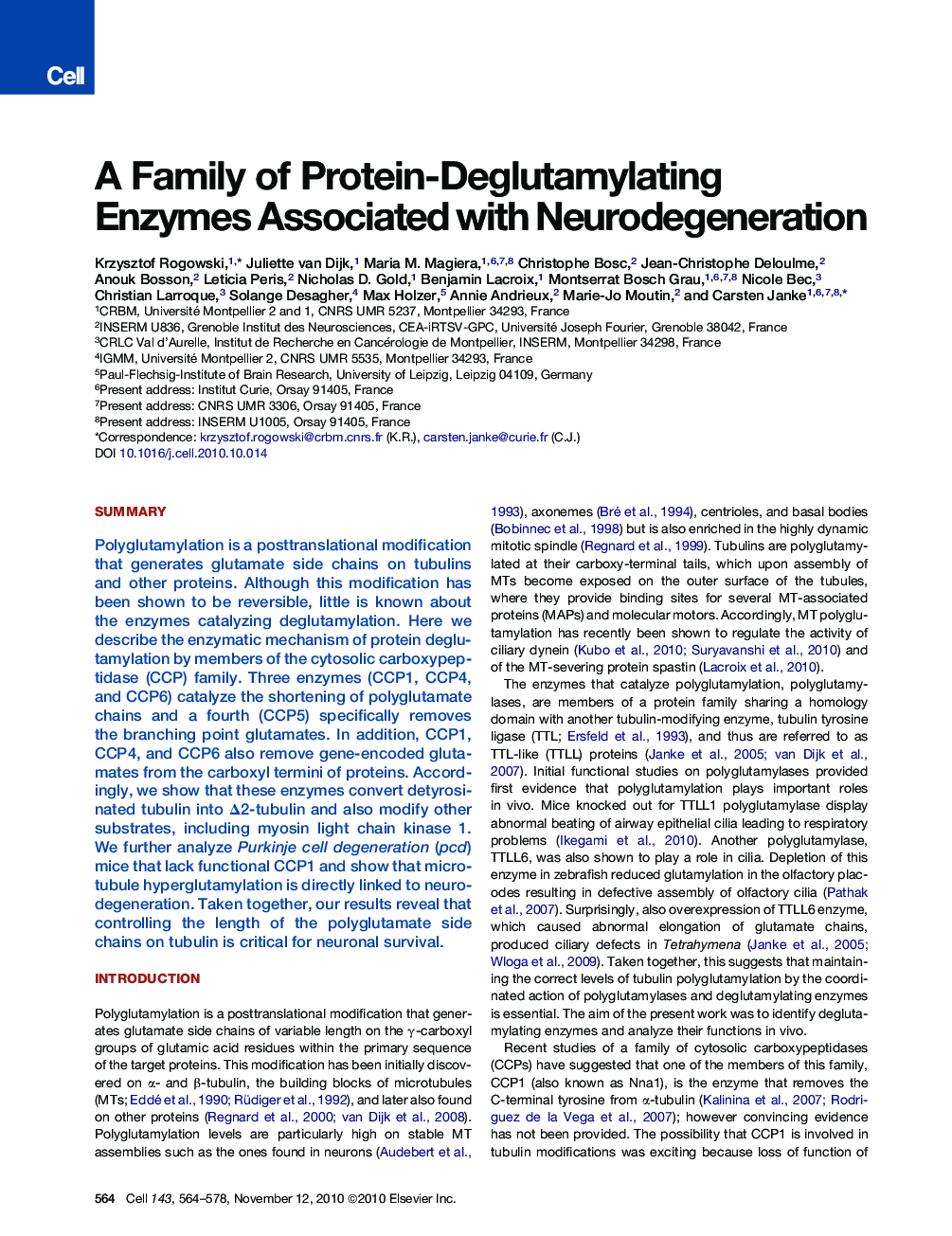| کد مقاله | کد نشریه | سال انتشار | مقاله انگلیسی | نسخه تمام متن |
|---|---|---|---|---|
| 2036504 | 1072268 | 2010 | 15 صفحه PDF | دانلود رایگان |

SummaryPolyglutamylation is a posttranslational modification that generates glutamate side chains on tubulins and other proteins. Although this modification has been shown to be reversible, little is known about the enzymes catalyzing deglutamylation. Here we describe the enzymatic mechanism of protein deglutamylation by members of the cytosolic carboxypeptidase (CCP) family. Three enzymes (CCP1, CCP4, and CCP6) catalyze the shortening of polyglutamate chains and a fourth (CCP5) specifically removes the branching point glutamates. In addition, CCP1, CCP4, and CCP6 also remove gene-encoded glutamates from the carboxyl termini of proteins. Accordingly, we show that these enzymes convert detyrosinated tubulin into Δ2-tubulin and also modify other substrates, including myosin light chain kinase 1. We further analyze Purkinje cell degeneration (pcd) mice that lack functional CCP1 and show that microtubule hyperglutamylation is directly linked to neurodegeneration. Taken together, our results reveal that controlling the length of the polyglutamate side chains on tubulin is critical for neuronal survival.
Graphical AbstractFigure optionsDownload high-quality image (260 K)Download as PowerPoint slideHighlights
► Posttranslational polyglutamylation is reversed by cytosolic carboxypeptidases
► Proteins can be modified by removal of the C-terminal glutamates
► Neuronal degeneration is directly linked to tubulin hyperglutamylation
Journal: - Volume 143, Issue 4, 12 November 2010, Pages 564–578